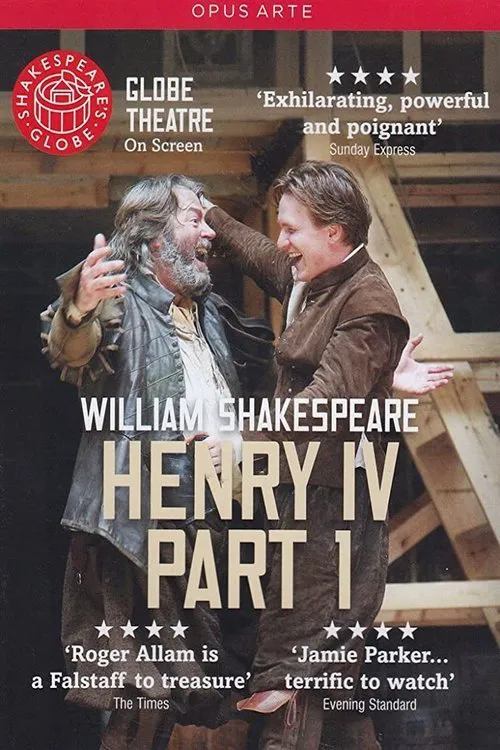Henry IV, Part 1 - Live at Shakespeare's Globe

Plot
Set against the tumultuous backdrop of medieval England, Henry IV, Part 1 is a tale of power, corruption, and the tumultuous journey of a young prince, Prince Hal, as he navigates his tumultuous relationships with his family, his friends, and the demands of fate. The production, Live at Shakespeare's Globe, brings this timeless story to life with a poignant blend of gritty realism and poetic language. As the curtain rises on a bustling tavern filled with the rowdy denizens of Eastcheap, Prince Hal is introduced as an impulsive and wayward youth, seemingly more interested in indulging in the pleasures of drink and women than in attending to his royal duties. His father, King Henry IV, is aware of his son's antics and is concerned that Hal's idleness will ultimately lead to his downfall. However, the king is confident that Hal will eventually come into his own as a capable ruler. One of the most memorable figures in the play is the charismatic and cunning Falstaff, a larger-than-life figure who serves as a foil to Hal's youthful impulsiveness. Falstaff is a master of deception and manipulation, using his wit and charm to swindle his way through life. Despite his dubious morals, Falstaff possesses a depth and complexity that makes him a compelling and endearing character. As the play progresses, the stage is set for a national rebellion led by Henry Percy, the charismatic leader of the rebel forces. Percy's son, Hotspur, is a brilliant and dashing warrior who embodies the chivalric ideal of medieval knighthood. With a fervor that borders on fanaticism, Percy rallies his troops to join the rebellion against King Henry IV, whom he accuses of usurping the throne from his rightful owner. Meanwhile, Prince Hal is forced to choose between his loyalty to his father and his friendship with Falstaff. As the stakes grow higher, Hal finds himself increasingly drawn into the world of politics, where power is a game played by ruthless and cunning operators like the Duke of Northumberland. With his father's health in decline, Hal is faced with the daunting prospect of inheriting the throne, which will require him to confront his own shortcomings and demonstrate his capacity to rule. The tension between Hal and his father becomes increasingly palpable as the rebellion gains momentum and the king's forces prepare for battle. The dramatic showdown between the rebels and the royal army is a masterclass in Shakespeare's skill at crafting compelling drama, with each combatant displaying a unique blend of courage and cunning. One of the standout aspects of the production is the way Shakespeare weaves together multiple storylines to create a rich tapestry of themes and characters. The play is a profound exploration of the consequences of our choices, as Hal is forced to confront the implications of his actions and make difficult decisions about his future. Through Shakespeare's masterful pen, we see a complex and nuanced portrait of Hal, a prince who is equal parts flawed and formidable. As Henry IV, Part 1 reaches its climactic conclusion, the stage is set for a dramatic showdown between Prince Hal and Hotspur. The final confrontation between the two young warriors is a thrilling display of Shakespeare's mastery of dramatic tension and poetic language, as Hal emerges victorious but scarred by the experience. The play ends with a poignant reflection on the nature of power and legacy, as Hal looks out upon the ruin of Eastcheap, a landscape forever changed by the tumultuous events that have transpired. Throughout the play, Shakespeare's words come alive in the performances of the cast, who bring a depth and nuance to their characters that is nothing short of remarkable. Falstaff, in particular, is a showstopper, embodying a wit and charm that is simply irresistible. The entire production is a testament to Shakespeare's enduring power to capture the human condition in all its complexity and glory. As the curtain falls on Henry IV, Part 1, the audience is left to ponder the implications of Hal's journey and the uncertain fate that lies ahead. The play is a powerful reminder of the timeless themes that underlie Shakespeare's works, a poignant exploration of power, loyalty, and the human condition that continues to resonate with audiences to this day.
Reviews
Recommendations



